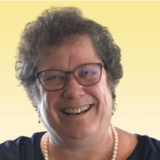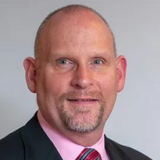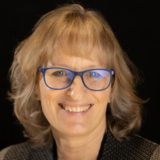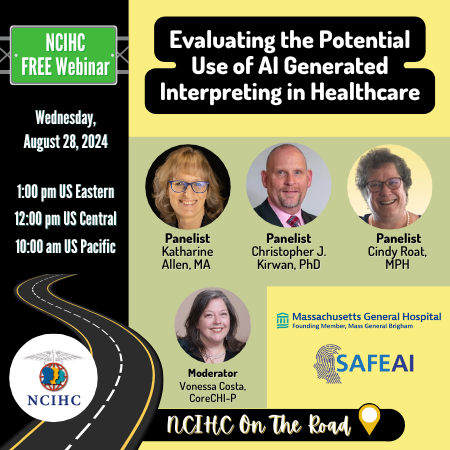The NCIHC will continue to host webinars and panel discussions about language access with the “NCIHC On the Road” series throughout 2024. These virtual events will join interpreters, advocates, patients, hospital administrators from risk management, compliance and patient experience, and other stakeholders for learning and discussion around building infrastructure in areas where public investment and oversight in language access is critical.
Webinar Description:
Evaluating the Potential Use of AI Generated Interpreting in Healthcare
Artificial Intelligence (AI) has the potential to improve the quality and efficiency of human-generated language services. However, healthcare organizations are being approached by tech companies offering to replace human interpreting with AI-generated interpreting – AIxAI – defined by the SafeAI Task Force as “machine interpretation produced by an AI software during real-time human communication without any input of humans during this interaction.” How safe is AIxAI for use in healthcare interpreting? What questions should healthcare administrators ask when considering the use of AI-generated interpreting products? Where might AIxAI be used effectively in a healthcare environment, and what can we learn from pilots of AI products? Are there elements of human interpretation that AIxAI can’t fully replicate? What crucial, yet understudied, aspects of the healthcare interpreter role extend beyond language conversion as drivers of health and health equity? Join our panel of subject matter experts as we consider these questions in light of recent guidance by the SafeAI Task Force and the National Council on Interpreting in Healthcare.
About the Panelists:

Cynthia Roat
Cindy Roat, MPH, is an international consultant on language access in health care. A native of upstate New York, she spent a decade working in rural areas of Latin America before moving to Seattle to earn her Masters degree in International Public Health from the University of Washington. Cindy entered the interpreting world in 1992 and quickly became certified by Washington State as a medical and social-service Spanish-English interpreter. Her interest in systems change, however, led her into teaching interpreters, trainers and medical providers the basics of interpreting practice and consulting with healthcare administrators around the country on how to improve their language access programs. Cindy spent three years at Seattle Children’s Hospital, managing their unique Bilingual Patient Navigator program, before returning to her national consulting work. Over the past two decades, Cindy has made significant contributions, both in the U.S. and abroad, in many areas of language access. She is the author of a wide array of key resources in the field and the primary developer of the original version of Bridging the Gap, for many years the country’s most widely-offered training for health care interpreters. Her most recent book, Healthcare Interpreting in Small Bites, is being adopted as an ancillary text in many interpreter training programs. Cindy has consulted for a variety of large medical centers and healthcare systems. Always concerned about building grassroots capacity, she has been a mentor to interpreters, trainers and Language Access Coordinators around the U.S. She is a founding member of the National Council on Interpreting in Health Care (NCIHC), where she has been a multiple term Board member, Chaired various committees and served as past Vice President, a founding member of the Washington State Coalition on Language Access (WASCLA), and a former board member of the Northwest Translators and Interpreters Society (NOTIS) where she currently organizes regular interpreter training workshops through the Medical Special Interest Group. She is known nationally as an engaging speaker, a knowledgeable resource, and an energetic advocate for language access in general.

Christopher J. Kirwan
Christopher J. Kirwan, PhD, is the Director of Interpreter Services at Massachusetts General Hospital and Coach of the MGH Patient Care Services Collaborative Governance Diversity and Inclusion Committee. He holds a doctorate in ethics from the Accademia Alfonisana in Rome, Italy, where he lived and attended school for eight years. He taught in the field of social ethics for many years before coming to MGH in 2006. Chris is past President of the Board of Directors of FOCIS (Forum on the Coordinators of Interpreter Services), which gathers coordinators of Interpreter Service Departments from all over the United States. He is the coach of the MGH Collaborative Governance Diversity and Inclusion Committee. Chris has co-authored four articles in peer-reviewed journals on the importance of the use of interpreter services for vulnerable populations. He is also involved in a number of projects across MGB focused on health equity for patients and their families with language access needs. Chris was a long-standing member of the Collaborative Governance Ethics in Clinical Practice Committee. English is Chris’ first language, and he is proficient in Spanish and Italian and has studied four others; he also has a deep passion for and commitment to efforts focused on diversity, inclusion, and equity.

Katharine Allen
Katharine Allen is the Language Access Training Specialist at Boostlingo, an interpretation software company. She is a community and conference-trained interpreter with over three decades of experience interpreting, training, and designing curricula. She is a licensed trainer and co-author for The Indigenous Interpreter®, The Community Interpreter® International, and the The Remote Interpreter® textbooks and training programs. She worked for 10 years to raise the profile of interpreting as co-President of InterpretAmerica. Katharine is a founding member of the American Association of Interpreting and Translation in Education (AAITE) and the SafeAI Task Force. Katharine has an MA in Translation and Interpretation from the Middlebury Institute of International Studies.
About the Moderator:

Vonessa Costa
Vonessa Costa is Sr. Director of Quality and Member Engagement for the Health Care Interpreter Network (HCIN), a collaborative of health systems that share interpreter resources. Prior to her current position, Vonessa was director of Multicultural Affairs and Patient Services at Cambridge Health Alliance (CHA), named the number one hospital in Massachusetts for Health Equity and Community Benefit by the Lown Institute (2021). She was a project lead for CHA’s video interpreting initiative honored with a 2014 Amerinet Healthcare Achievement Award for technological advances that have enhanced capacity to care for a diverse patient population, over forty percent of which receives care in a non-English language. Prior to her work at CHA, Vonessa was director of the Cross Cultural Communication Institute at CCCS, Inc., where she specialized in curriculum development for interpreter and provider training and lectured nationally on topics related to intercultural communication and language access. Vonessa is a member of the NCIHC Outreach and Membership Committee. She is a Core Certification Healthcare Interpreter™ (CoreCHI™) credentialed by the Certification Commission for Healthcare Interpreters, and has served as a CCHI Commissioner since 2020 and as Chair since 2023. She is a past secretary of both the Forum on the Coordination of Interpreter Services and the International Medical Interpreters Association. Vonessa is a graduate of the America's Essential Hospitals Fellows Program. Vonessa has co-authored articles on strategies to improve care for LEP patients, published in the AMA Journal of Ethics, The Joint Commission Journal on Quality and Patient Safety, and the European Medical Writers Association Journal. She was the 2019 Tony Windsor Award recipient, chosen by the MassAHEC Network for her advocacy in the professionalization of medical interpreting
|









